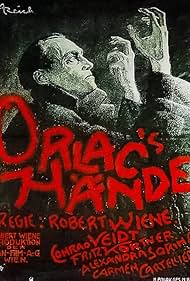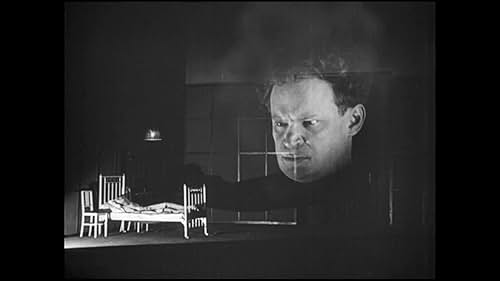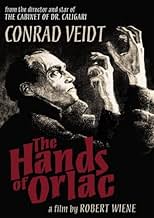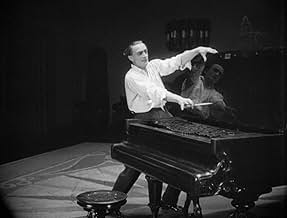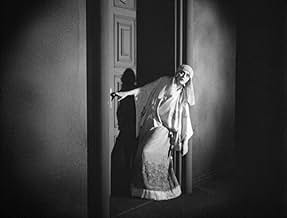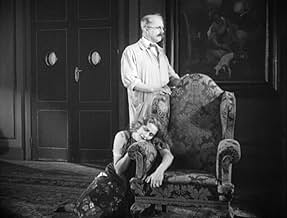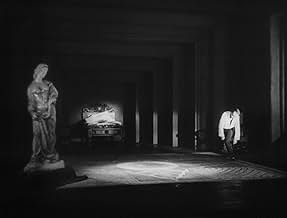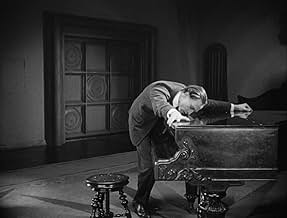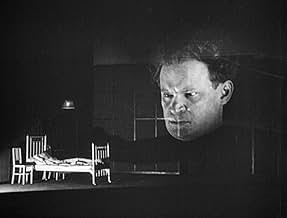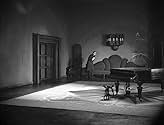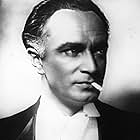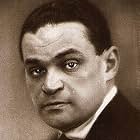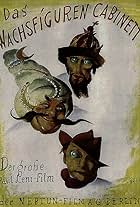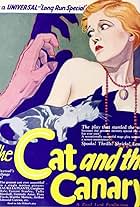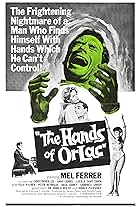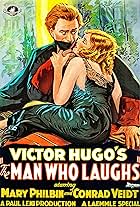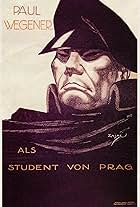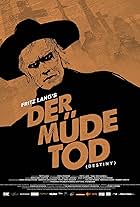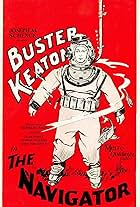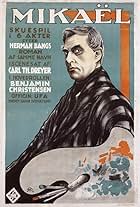IMDb RATING
7.0/10
3.6K
YOUR RATING
A world-famous pianist loses both hands in an accident. When new hands are grafted on, he doesn't know they once belonged to a murderer.A world-famous pianist loses both hands in an accident. When new hands are grafted on, he doesn't know they once belonged to a murderer.A world-famous pianist loses both hands in an accident. When new hands are grafted on, he doesn't know they once belonged to a murderer.
Conrad Veidt
- Paul Orlac
- (as Veidt)
Alexandra Sorina
- Yvonne Orlac
- (as Sorina)
Fritz Strassny
- Der alte Orlac
- (as Strassny)
Paul Askonas
- Der Diener
- (as Askonas)
Carmen Cartellieri
- Regine
- (as Cartellieri)
Hans Homma
- Dr. Serral
- (as Homma)
Fritz Kortner
- Nera
- (as Kortner)
- Director
- Writers
- All cast & crew
- Production, box office & more at IMDbPro
Storyline
Did you know
- TriviaThis film was incomplete for decades, due to footage that never made it into the American prints and footage that had been cut due to censorship in German prints. The film was restored to its original length in 1995 by F. W. Murnau Stiftung.
- GoofsWhen Orlac reads a newspaper, the headlines are in German but the body in French.
- Quotes
Dr. Serral: The spirit governs the hand... nature and a firm will can do anything.
- Crazy creditsIn the opening credits, all cast members are billed by their last names only.
- Alternate versionsFirst released in 1924 in Austria and several months later in Germany, the original print ran to 2,507m (92 minutes). In June 1928, it premiered in the United States with an entire reel edited out which prompted a mixed critical reception. In 1995, the film was restored by Bundesarchiv-Filmarchiv in Berlin, Friedrich-Wilhelm-Murnau-Stiftung and the Deutsches Filminstitut with the co-operation of Jugoslovenska Kinoteka in Belgrad. This version had new music by Henning Lohner and was also given background noises and the sound effects of an interrogation scene of which was not universally approved. A new restoration was released on Region 1 DVD in 2008 by Kino Lorber which was based on the 1995 restoration and restored by Bret Wood, with a score by composer Paul Mercer and additional footage courtesy of The Raymond Rohauer Collection in Columbus, Ohio and took the running time to 110 minutes. In 2013 Filmarchiv Austria restored the film with material from its archives, running to 93 minutes. This had a score composed by Donald Sosin, performed by the composer at the piano and Dennis James at the Rieger organ. The 2013 restoration, with a score by Johannes Kalitze, was released on Blu-ray in Germany in 2019 and later in the United Kingdom in 2021.
- ConnectionsEdited into Histoire(s) du cinéma: Fatale beauté (1994)
Featured review
I'm glad I had this chance to check out yet another German Expressionist classic even if I had to make do with faint Spanish subtitles over the original German intertitles (then again, the narrative is easy enough to follow)! It took me some time to warm up to the film: the pace is extremely sluggish (the aftermath of the train-wreck at the beginning seemed interminable), while the all-important decision to exchange the damaged hands of famed concert pianist Orlac with those of a murderer felt too abrupt.
In preparation for this review, I re-read Michael Elliott's comments on the film: while I generally concur with his opinion, at this stage I wouldn't put this above the 1935 Karl Freund/Peter Lorre/Colin Clive remake MAD LOVE (Ted Healy's intrusive comedy relief, to me, is just about the only negative element in that film while adding Dr. Gogol's obsessive yearning for Orlac's wife, hence the new title). Still, I was surprised by how much the later film actually followed the Silent version especially the two scenes in which Orlac meets the 'executed' murderer of the Maurice Renard story; another remake appeared in 1960, co-starring Christopher Lee and which I watched on Italian TV not too long ago but already can hardly remember anything about it!
Conrad Veidt's lanky figure and stylized approach to acting perfectly suited the requirements of the leading role (his posture generally echoing that of Cesare the Somnambulist in the same director's THE CABINET OF DR. CALIGARI [1919]); the expressionist sets were also notable but the film's style is generally an internalized one in that it deals primarily with Orlac's state of mind filming him in tight shots whenever possible. However, the avant-garde score which accompanied the Grapevine Video edition I watched was a matter of taste featuring a female vocalist who frequently attempted to simulate the various characters' emotions with an annoying array of wails, shrieks and faint whispers!
It's unfortunate, too, that the backlog I have of unwatched films on DVD doesn't permit me to check out the Kino edition of CALIGARI for the moment especially since it contains a lengthy condensed version of another intriguing Wiene title, GENUINE: A TALE OF A VAMPIRE (1920)
In preparation for this review, I re-read Michael Elliott's comments on the film: while I generally concur with his opinion, at this stage I wouldn't put this above the 1935 Karl Freund/Peter Lorre/Colin Clive remake MAD LOVE (Ted Healy's intrusive comedy relief, to me, is just about the only negative element in that film while adding Dr. Gogol's obsessive yearning for Orlac's wife, hence the new title). Still, I was surprised by how much the later film actually followed the Silent version especially the two scenes in which Orlac meets the 'executed' murderer of the Maurice Renard story; another remake appeared in 1960, co-starring Christopher Lee and which I watched on Italian TV not too long ago but already can hardly remember anything about it!
Conrad Veidt's lanky figure and stylized approach to acting perfectly suited the requirements of the leading role (his posture generally echoing that of Cesare the Somnambulist in the same director's THE CABINET OF DR. CALIGARI [1919]); the expressionist sets were also notable but the film's style is generally an internalized one in that it deals primarily with Orlac's state of mind filming him in tight shots whenever possible. However, the avant-garde score which accompanied the Grapevine Video edition I watched was a matter of taste featuring a female vocalist who frequently attempted to simulate the various characters' emotions with an annoying array of wails, shrieks and faint whispers!
It's unfortunate, too, that the backlog I have of unwatched films on DVD doesn't permit me to check out the Kino edition of CALIGARI for the moment especially since it contains a lengthy condensed version of another intriguing Wiene title, GENUINE: A TALE OF A VAMPIRE (1920)
- Bunuel1976
- Feb 20, 2007
- Permalink
- How long is The Hands of Orlac?Powered by Alexa
Details
- Runtime1 hour 32 minutes
- Sound mix
- Aspect ratio
- 1.33 : 1
Contribute to this page
Suggest an edit or add missing content

